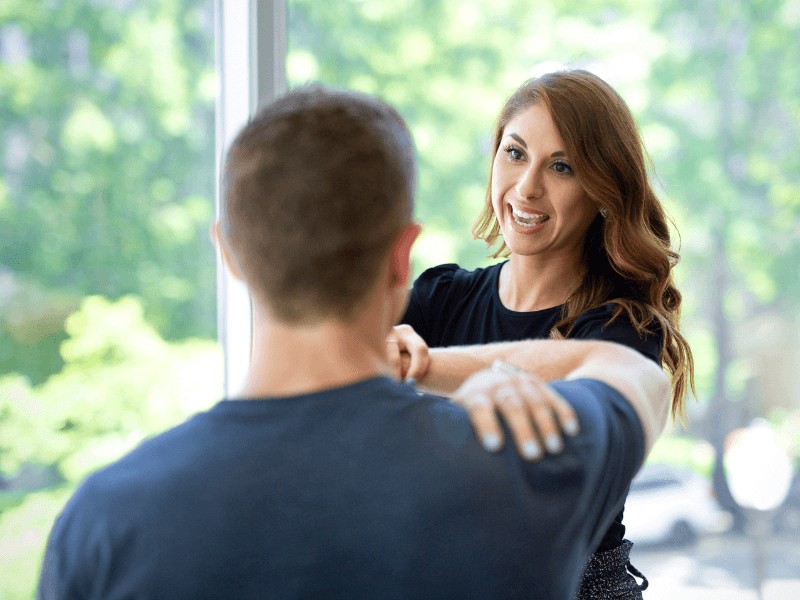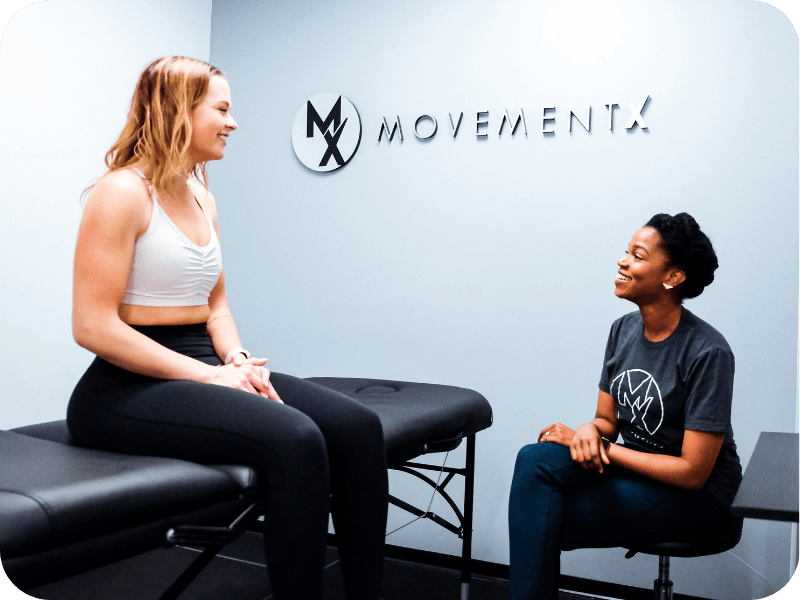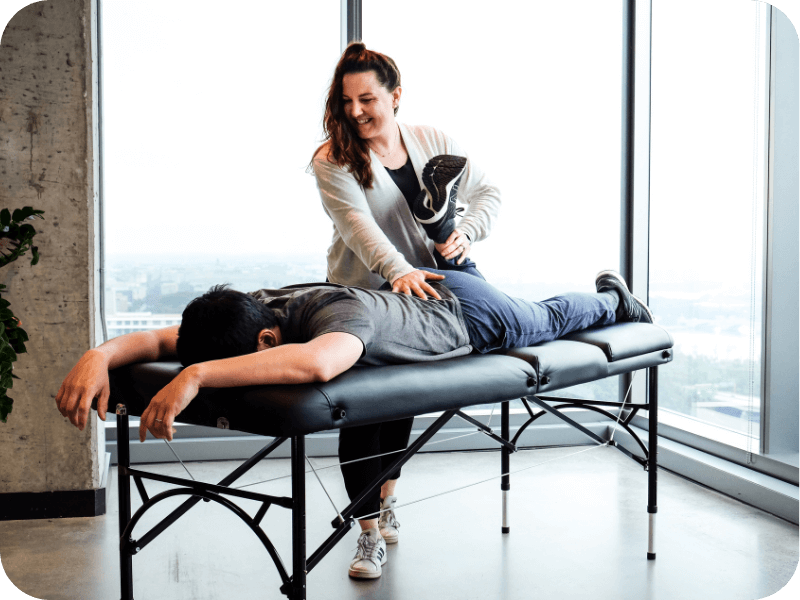The 5 Cs: What I’ve Learned as a MovementX Provider and Coach
As both a practicing MovementX physical therapist and a coach for other MovementX providers, I’ve gained valuable insights that have shaped my approach to patient care, collaboration and professional development.
In many ways, there are similarities between treating patients and coaching providers. In both cases, I’m helping someone reach their goals by empowering them with the resources and knowledge to do so.
In each case, the patient and provider are the MVP and true drivers of success.
If a patient isn’t consistent with sessions, home exercises or holistic recommendations then they are less likely to meet their goals (or progress will be delayed).
Similarly, if providers aren’t consistently building strong relationships, communicating clearly and embracing a positive mindset it could take longer for them to reach their goals.
The 5 Key C’s I have embraced and coached are:
- Community
- Communication
- Confidence
- Curiosity
- Consistency
Community
Build strong relationships with your patients.
As an out of network physical therapist, we have the freedom to truly connect with each patient, to tailor every care plan to each patient’s unique needs and spend more time with them.
This flexibility is a game-changer.
It allows us to build community with our patients as well. It’s taught me that no two patients are alike, and personalized care can significantly enhance outcomes.
Building strong relationships with our patients allows us to deeply understand their lifestyle, goals, and challenges which allows us to create more effective and sustainable treatment plans.
Build strong relationships with your health and wellness community.
As a coach for other out of network physical therapists, I often wish I could delete the word “marketing” from our minds. Instead, I would focus those efforts on building strong relationships with other providers and wellness professionals in each community.
Traditional marketing tactics of cold calls, leaving business cards or event marketing have proven to be far less effective than building collaborative relationships with the community around you – all with a similar goal of improving the life of each patient.

Communication
Communicate clearly.
Whether working with patients, coaching other therapists or collaborating with community partners, clear communication is critical. Patients need to feel heard and understood, yet they also deserve clear communication summarizing our clinical findings and plan of care. Similarly, fellow providers need to feel supported, valued, and deserve clear recommendations/action items to help reach their goals.
These connections rooted in clear communication and respect foster a collaborative environment where everyone thrives.
Confidence + Positivity
Embrace a confident and positive mindset.
Confidence is the feeling of belief or trust that a person or thing is reliable. Self-confidence involves a positive belief that one can generally accomplish what one wishes to do in the future.
As therapists, if we are not confident in our abilities and values, then it is less likely that patients or other providers will place their trust in us.
A positive mindset can strongly influence both patient outcomes and professional growth in a powerful way.
Encouraging positivity and resilience helps patients in their recovery journey and therapists in their professional development. It’s about fostering an environment where challenges are viewed as opportunities for growth. Embracing an abundance mindset will help foster more collaboration and less competition in our team oriented model.
These steps always result in better outcomes for our patients.

Curiosity
Seek to understand and strive to gain more knowledge.
Ask thoughtful questions to intentionally learn more about those around you, including your patients, your community partners, your colleagues and yourself.
Ask thoughtful questions about how we can improve the experience for our patients, how we can serve our community and how we can continuously learn and grow as providers.
While I provide guidance and support to other therapists, I also learn a great deal from them. Their experiences, perspectives and insights often inspire me and enhance my own practice. This mutual exchange of knowledge and experience is incredibly rewarding.
This inquisitiveness ensures that we remain engaged and adaptive, providing the most effective care. Curiosity pushes me to challenge my own assumptions and assumptions I hear from patients and other providers.
Ultimately, curiosity fuels our passion for discovery and growth, which always benefits our patients and community.
Consistency
Consistently show up for others and show up for yourself.
Be present professionally, but also to be present personally. The beauty of this model is that we have full autonomy of our schedule. With this new freedom come other challenges. Namely, learning how to time block appropriately to lean into our own self care. We must show up consistently for our patients and partners, but also ourselves.
As a physical therapist, I wouldn’t expect one single session to cure anyone or expect them to reach all goals in one hour. Similarly, I wouldn’t expect a thriving partnership to blossom after a single or limited number of touch points. Embracing the skill of schedule blocking early in this model helps support your consistency in everything you do.
Conclusion
In conclusion, my experiences as both a physical therapist and a coach for other therapists have underscored the importance of community, communication, confidence, curiosity and consistency.
Building strong relationships and personalized care plans are crucial for patient success, just as fostering professional relationships and clear communication are vital for the growth of other therapists.
Confidence and a positive mindset can significantly influence both patient outcomes and professional development. Maintaining curiosity ensures continued growth and adaptation, enhancing the care we provide.
Finally, consistency in showing up for patients, partners, and yourself is essential for sustained success and well-being. By embracing these principles, we can create a collaborative and thriving environment for both patients and providers at MovementX!
About the Author
Dr. Mikaila Boldt is a physical therapist with MovementX in Pinehurst, North Carolina. She is also a Certified Brain Injury Specialist (CBIS), Registered Yoga Teacher (RYT 200), LSVT BIG Certified (for Parkinson’s Disease), and certified in Postpartum Rehabilitation through Herman & Wallace. When not working with clients, Mikaila enjoys hiking, skiing, traveling, reading, practicing yoga, or snuggling her sweet pup!
Share This Page
Related Resources
Found this page interesting? Discover more insightful resources below.








